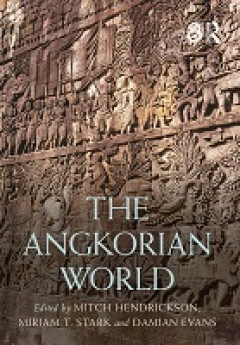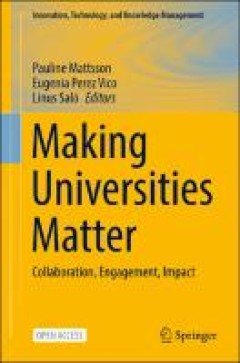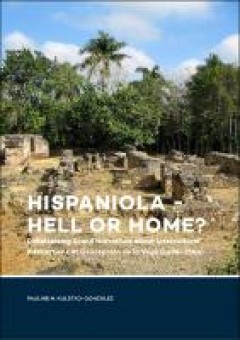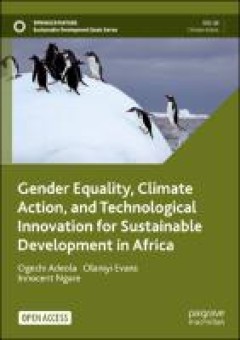Ditapis dengan

E-book Perspectives on the "Collapse" of Angkor and the Khmer Empire (Chapter…
The Angkorian World explores the history of Southeast Asia’s largest ancient state from the first to mid-second millennium CE. Chapters by leading scholars combine evidence from archaeology, texts, and the natural sciences to introduce the Angkorian state, describe its structure, and explain its persistence over more than six centuries. Comprehensive and accessible, this book will be an indis…
- Edisi
- -
- ISBN/ISSN
- 9780815355953
- Deskripsi Fisik
- 14 halaman
- Judul Seri
- -
- No. Panggil
- 930.1 EVA p

E-book William Rimmer : Champion of Imagination in American Art
William Rimmer (1816–1879) was a major and highly influential American artist, who, fairly consistently, managed to be misunderstood. Since his death, assessments of him have varied widely. He has been labeled both a neoclassicist and a precursor of the rebellious French sculptor, Auguste Rodin.1 Yet the content of Rimmer’s sculpture is ver…
- Edisi
- -
- ISBN/ISSN
- 9781800647589
- Deskripsi Fisik
- 252 hlm
- Judul Seri
- -
- No. Panggil
- 701 EVA w
E-book Emotion: A Very Short Introduction
Was love invented by European poets in the Middle Ages or is it part of human nature? Will winning the lottery really make you happy? Is it possible to build robots that have feelings? In this Very Short Introduction Dylan Evans explores these and many other intriguing questions in this guide to the latest thinking about the emotions. Drawing on a wide range of scientific research, from anth…
- Edisi
- -
- ISBN/ISSN
- 0192804618
- Deskripsi Fisik
- 161 halaman
- Judul Seri
- -
- No. Panggil
- 152.4 EVA e
E-book The Sage Handbook of Diplomacy
Preparing a handbook on diplomacy nowadays reflects a major challenge that was not present during Satow’s times, and which lets us say a great deal more about diplomacy than Satow could. Specifically, a handbook today encounters and benefits from the development over the last 100 years of the academic discipline of International Relations and within it the rich and expanding field of Diplomat…
- Edisi
- -
- ISBN/ISSN
- 9781446298565
- Deskripsi Fisik
- 723 hlm
- Judul Seri
- -
- No. Panggil
- 327.2 CON t
E-book The Encyclopedia of Embroidery Techniques
- Edisi
- -
- ISBN/ISSN
- 0855329858
- Deskripsi Fisik
- 178 halaman, ilus.
- Judul Seri
- -
- No. Panggil
- 746.2 BRO t
- Edisi
- -
- ISBN/ISSN
- 0855329858
- Deskripsi Fisik
- 178 halaman, ilus.
- Judul Seri
- -
- No. Panggil
- 746.2 BRO t

E-Book Making Universities Matter: Collaboration, Engagement, Impact
In an era of rapid change and increasing societal demands, the role of universities as knowledge producers and catalysts for change has come under scrutiny. This open access book offers a fresh perspective on the significance of universities in society, shedding light on how their knowledge can truly matter beyond academia. Drawing upon insightful inquiries from both the Swedish and internation…
- Edisi
- -
- ISBN/ISSN
- 9783031487996
- Deskripsi Fisik
- 232 halaman
- Judul Seri
- -
- No. Panggil
- 378 MAT m

E-Book Hispaniola - Hell or Home? : Decolonizing Grand Narratives about Inter…
Grand Narratives of colonization, especially ones related to the Spanish and Portuguese Americas, began circulating soon after 1492. The danger of these Grand Narratives is that they are often mistaken as reality and eclipse all other possible narrations pertaining to a particular place and/or time. As more Caribbean territories become independent, the questioning of Grand Narratives has permea…
- Edisi
- -
- ISBN/ISSN
- 9789088908514
- Deskripsi Fisik
- 258 halaman
- Judul Seri
- -
- No. Panggil
- 930.1 KUL h

E-Book Gender Equality, Climate Action, and Technological Innovation for Sust…
This open access book explores the intersection of gender and climate change, suggests ways in which innovative technologies can accelerate climate relief actions, and offers strategies for integrating climate change initiatives into national policies and planning. By examining the devastating consequences of climate change on women and girls throughout the continent, the authors pose a crucial…
- Edisi
- -
- ISBN/ISSN
- 9783031401244
- Deskripsi Fisik
- 260 halaman
- Judul Seri
- -
- No. Panggil
- 577 ADE g
E-book Natural Law : A Translation of the Textbook for Kant’s Lectures on L…
s the first translation into any modern language of Achenwall’sIus naturae, from the 1763 edition used by Immanuel Kant, this open access book is an essential work for students and Kant scholars. For over twenty years, Kant used this book as the basis for his lectures on natural law. It has influenced his legal and political philosophy, as well as his ethics, and is indispensable for understa…
- Edisi
- -
- ISBN/ISSN
- 9781350022867
- Deskripsi Fisik
- -
- Judul Seri
- -
- No. Panggil
- 189 ACH n
E-book Morals not Knowledge
As my writing has unfolded over the years it was not until recently that I was able to see the connections between my seemingly varied interests. In retrospect I have always been writing about religion and science, or at least religion and knowledge, but in recent years I became involved with the “religion and science debate.” This is an interdisciplinary group of scholars who examin…
- Edisi
- -
- ISBN/ISSN
- 2017045416
- Deskripsi Fisik
- 240 hlm
- Judul Seri
- -
- No. Panggil
- 201.6 EVA m

Antropologi sosial
- Edisi
- cet. 1
- ISBN/ISSN
- -
- Deskripsi Fisik
- 161 hlm;;14.5 x 20.5 cm
- Judul Seri
- -
- No. Panggil
- 301 PRI a
- Edisi
- cet. 1
- ISBN/ISSN
- -
- Deskripsi Fisik
- 161 hlm;;14.5 x 20.5 cm
- Judul Seri
- -
- No. Panggil
- 301 PRI a

Antropologi sosial
- Edisi
- -
- ISBN/ISSN
- -
- Deskripsi Fisik
- -
- Judul Seri
- -
- No. Panggil
- 301 PRI a
- Edisi
- -
- ISBN/ISSN
- -
- Deskripsi Fisik
- -
- Judul Seri
- -
- No. Panggil
- 301 PRI a

IMPROVING ENGLISH SKILLS
- Edisi
- -
- ISBN/ISSN
- 0 - 273 - 02437
- Deskripsi Fisik
- vi; 258 pgs;185 x 24.5 cm
- Judul Seri
- -
- No. Panggil
- 428 EVA i
- Edisi
- -
- ISBN/ISSN
- 0 - 273 - 02437
- Deskripsi Fisik
- vi; 258 pgs;185 x 24.5 cm
- Judul Seri
- -
- No. Panggil
- 428 EVA i
 Karya Umum
Karya Umum  Filsafat
Filsafat  Agama
Agama  Ilmu-ilmu Sosial
Ilmu-ilmu Sosial  Bahasa
Bahasa  Ilmu-ilmu Murni
Ilmu-ilmu Murni  Ilmu-ilmu Terapan
Ilmu-ilmu Terapan  Kesenian, Hiburan, dan Olahraga
Kesenian, Hiburan, dan Olahraga  Kesusastraan
Kesusastraan  Geografi dan Sejarah
Geografi dan Sejarah